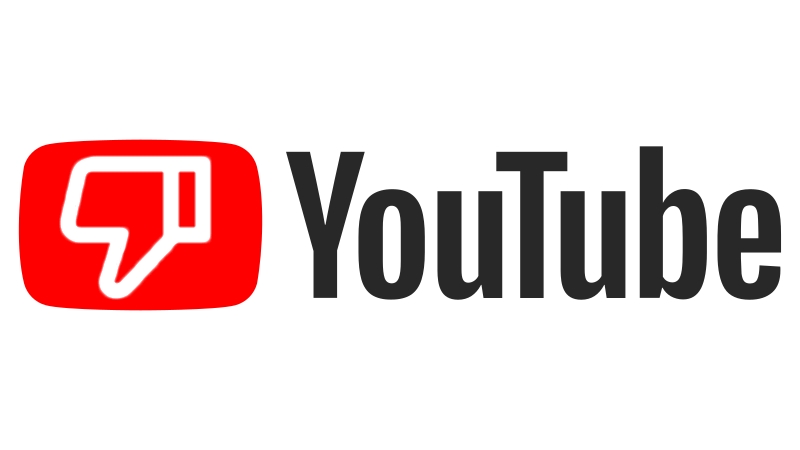
Google have announced they will be making all Dislikes on YouTube videos private, while the Dislike button will remain.
As stated on the YouTube blog, Google are striving for YouTube “to be a place where creators of all sizes and backgrounds can find and share their voice.” In order for YouTube to promote “respectful interactions between viewers and creators” features were introduced, along with experiments earlier this year with the dislike button to prevent “dislike attacks” against creators.
Google state the results of that experiment showed that the “attacks” were reduced when users could not see how disliked a video was. The harassment was also stated to be targeted at smaller channels who are just starting out.
Based on all this Google will now make dislike counts private across all of YouTube, gradually rolling out today. However, the dislike button will remain; as to provide feedback to the creator of the video, and adjust recommended videos. Google hopes this will “create an inclusive and respectful environment where creators have the opportunity to succeed and feel safe to express themselves.”
Google acknowledge that during the prior experiment, people used like and dislike ratios to decide whether to watch a video. “We know that you might not agree with this decision,” the YouTube Blog states, “but we believe that this is the right thing to do for the platform.”
“We want to create an inclusive and respectful environment where creators have the opportunity to succeed and feel safe to express themselves. This is just one of many steps we are taking to continue to protect creators from harassment. Our work is not done, and we’ll continue to invest here.”
The obvious flaws include there being no way to distinguish between unpopular videos and genuinely disliked videos. For example, a recent gamer-centric Coca Cola advert had over 800,000 views, and 5.8 thousand likes. However that video also got 72 thousand dislikes (as of this time of writing); due to its cringe-worthy tone.
The removal may also hinder criticisms of not just brands, but politicians, political discussions, and other important topics. It would be harder to distinguish for viewers if an ideal is unpopular or indifferent to most people, compared to outright loathed. Should a user disable comments, it would mean all a viewer would know is how many people saw the video, and how many liked it.
Twitter had also taken similar steps to prevent users being “ratio’d;” a large number of users not liking a tweet, but retweeting and discussing (usually far from praise). This included limiting who could reply to a tweet, even down to select users. Prior to this announcement, users could already private likes and dislikes on their videos.
For comparison, Steam handles “review bombing” by omitting large numbers of negative reviews in a short time frame from the game’s overall recommended percentage. That period of time is still publicly noted, and users can see those reviews if they so wish.
Will this help viewers make up their own minds? Are YouTube focused on helping the little guy, or far larger groups from dislikes? Sound off in the comments below!
This is Niche Gamer Tech. In this column, we regularly cover tech and things related to the tech industry. Please leave feedback and let us know if there’s tech or a story you want us to cover!